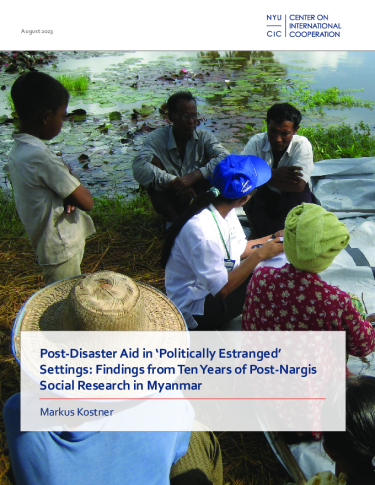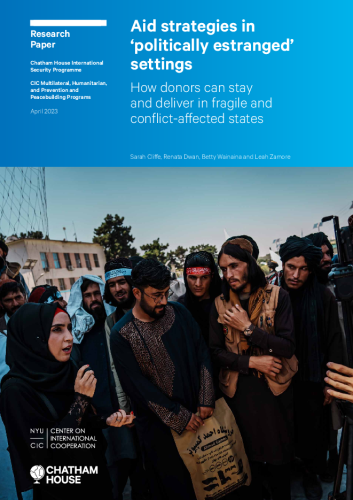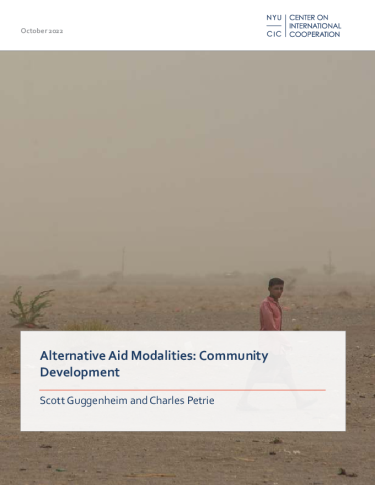This paper aims to inform post-disaster relief and recovery efforts in situations where relations between major development donors and national authorities are estranged.
It reflects on the “what” and the “how” of aid as well as on the challenges encountered, and created, by aid providers following the 2008 Cyclone Nargis in Myanmar. It thereby demonstrates the importance of giving agency to communities for both aid delivery and oversight in these settings.
Longitudinal social impacts monitoring (SIM) in a panel of 40 villages following the 2008 Cyclone Nargis identified three interrelated, yet often neglected principles that help to determine the effectiveness of post-disaster aid:
- empowerment—communities not only participate in, but own decision-making throughout the project cycle;
- transparency—communities know what aid a provider intends to deliver, and how; and
- accountability—communities can seek redress for aid that risks harming them in some way.
Had these principles been applied consistently during the post-Nargis period, the aid effort could have identified critical challenges and opportunities more easily, such as:
- the fact that communities are readily able to identify what they need, and to prioritize the types of assistance they wish to receive (particularly regarding livelihood recovery);
- the importance of anticipating longer-term, direct and indirect economic, social, and mental health impacts;
- the value of building flexibility into the aid effort as needs change throughout the recovery process;
- the need to differentiate between livelihood groups, consider their interdependence, and target aid accordingly and consistent with village social norms;
- the importance of including local formal and informal leaders in the decision-making process from the outset;
- the imperative of providing aid irrespective of identity markers such as ethnicity or religion; and
- the need to avoid overburdening or harming communities through the way aid is administered.
The post-Nargis aid effort faced numerous political and logistical complexities of operating in a country that was facing international sanctions. These challenges notwithstanding, several aid providers demonstrated that adherence to the three principles was possible. The SIM series thus confirmed that, for aid in “politically estranged” post- disaster settings, community-driven approaches can be an effective delivery modality and community-based, participatory social research can be a powerful oversight mechanism.


